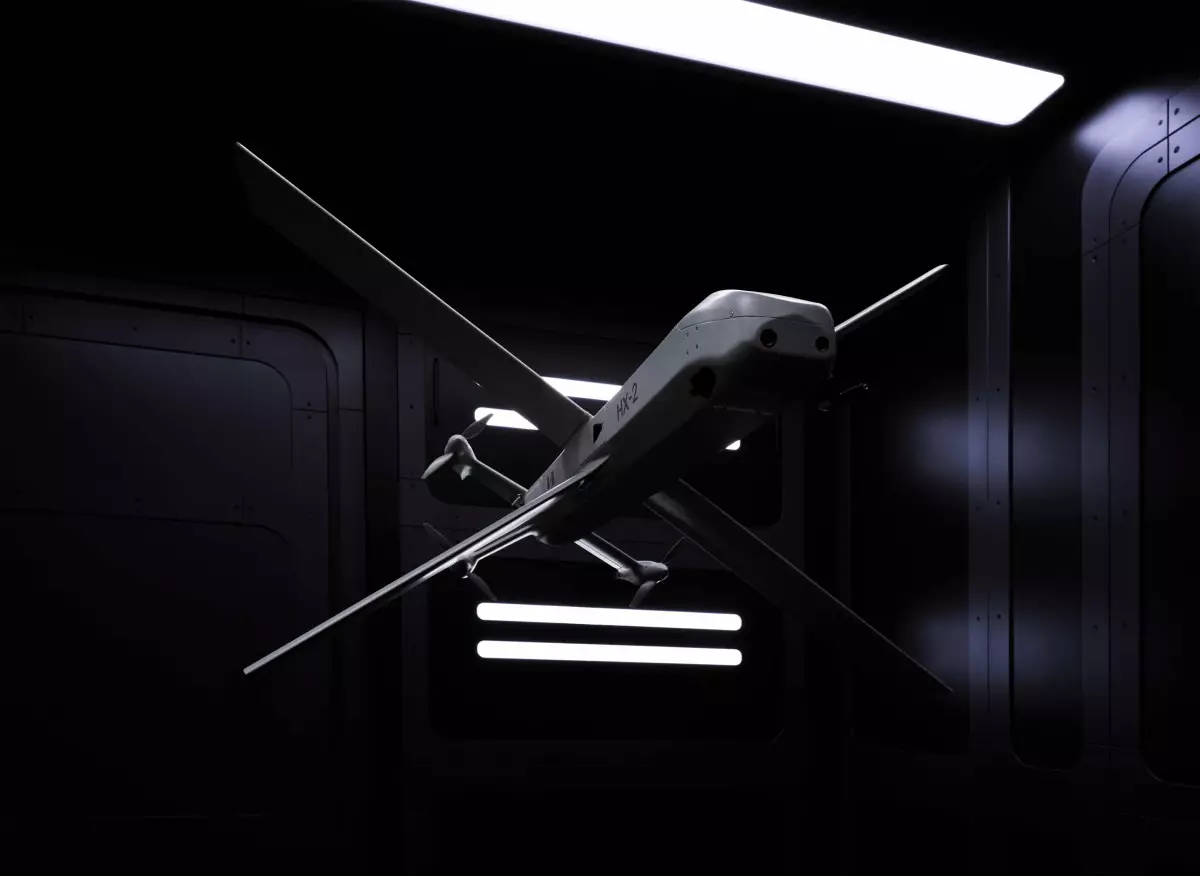In recent years, the demand for advanced military technologies has surged, particularly in the realm of unmanned aerial vehicles (UAVs). Among the companies stepping to the forefront of this sector is Helsing, a German defense tech startup predominantly backed by prominent investors, including Spotify’s Daniel Ek. The company is not only increasing its output but also reshaping the landscape of drone utilization in warfare. Helsing’s plans to manufacture 6,000 HX-2 strike drones, alongside 4,000 HF-1 drones already financed by Germany for delivery to Ukraine, highlights its aggressive expansion strategy amid ongoing geopolitical tensions.
The urgency for drone technology is particularly pronounced as world leaders, including U.S. President Donald Trump and Russian President Vladimir Putin, launch discussions regarding the resolution of the war in Ukraine. The implication of these talks raises pertinent questions about the duration of the conflict and the relevance of advanced drone technologies in modern warfare. Helsing’s commitment to drone production showcases its strategic pivot since 2024, transitioning from an AI software provider to a significant player in the military drone manufacturing arena.
The HX-2 and HF-1 drones represent not merely an extension of Helsing’s product line but a critical evolution of drone warfare strategies. Strike drones are inherently designed for offensive capabilities, playing a crucial role in military operations. Helsing’s HX-2 model stands out due to its incorporation of artificial intelligence (AI) systems that enhance target acquisition, particularly critical in scenarios where communications may be disrupted or jammed.
These advancements reflect a broader trend where the combat applications of drones are becoming increasingly sophisticated. The company’s co-founder, Gundbert Scherf, remarked on their industrial ramp-up, which is essential as countries bolster their military capabilities in response to real-time geopolitical threats. Interestingly, while competing drone models like the AeroVironment Switchblade focus on advanced sensors, Helsing aims for a blend of innovative hardware and software, positioning itself as a hybrid tech leader.
Helsing’s vision of establishing “Resilience Factories” across Europe signifies a forward-looking approach to drone manufacturing. By decentralizing production facilities, Helsing can leverage local supply chains and workforces, ensuring compliance with national defense procurement strategies that prioritize domestic production. This operational tactic not only promotes efficiency but also enhances total sovereignty over defense technologies.
The first of these Resilience Factories, now operational in Southern Germany, boasts an impressive capacity of over 1,000 HX-2 drones monthly and is primed to scale production significantly during times of conflict. This strategic flexibility reflects a keen understanding of the unpredictable nature of modern warfare and national defense requirements. The agility in manufacturing also suggests that Helsing is preparing for long-term commitments in European defense, especially as nations reconsider their military preparedness against a backdrop of increasing global volatility.
The recent announcement of a $487 million Series C funding round underscores Helsing’s critical role in bolstering Europe’s defense infrastructure. With cumulative funding nearing €761.5 million (approximately $791 million), the startup is poised to contribute significantly to Europe’s ambitions for self-sufficiency in defense technology. The Munich Security Conference, where Helsing’s announcement coincided, has solidified Southern Germany as a pivotal defense center, encouraging a resurgence of investment in military technologies and resilience.
Moreover, Helsing’s strategic partnership with French AI specialist Mistral exemplifies the collaborative spirit necessary for Europe to assert its technological prowess on a global scale. Scherf’s assertion that “AI leadership is the key to that strength and Europe’s future security” encapsulates the growing recognition that technological innovation is at the core of modern military strategy.
As Helsing continues to develop and refine its drone technologies, the potential implications for military operations are profound. The integration of cutting-edge AI in unmanned aerial vehicles aligns with evolving combat demands, illustrating a consequential shift toward more intelligent and adaptable warfare systems. With the geopolitical landscape in constant flux, Helsing stands at the nexus of technological innovation and strategic military capabilities, potentially influencing the dynamics of future conflicts on a global stage. The startup’s ambitious endeavors reflect not only the necessity for advancements in defense but also the critical role that countries will play in ensuring their sovereign security through collaborative innovation.

